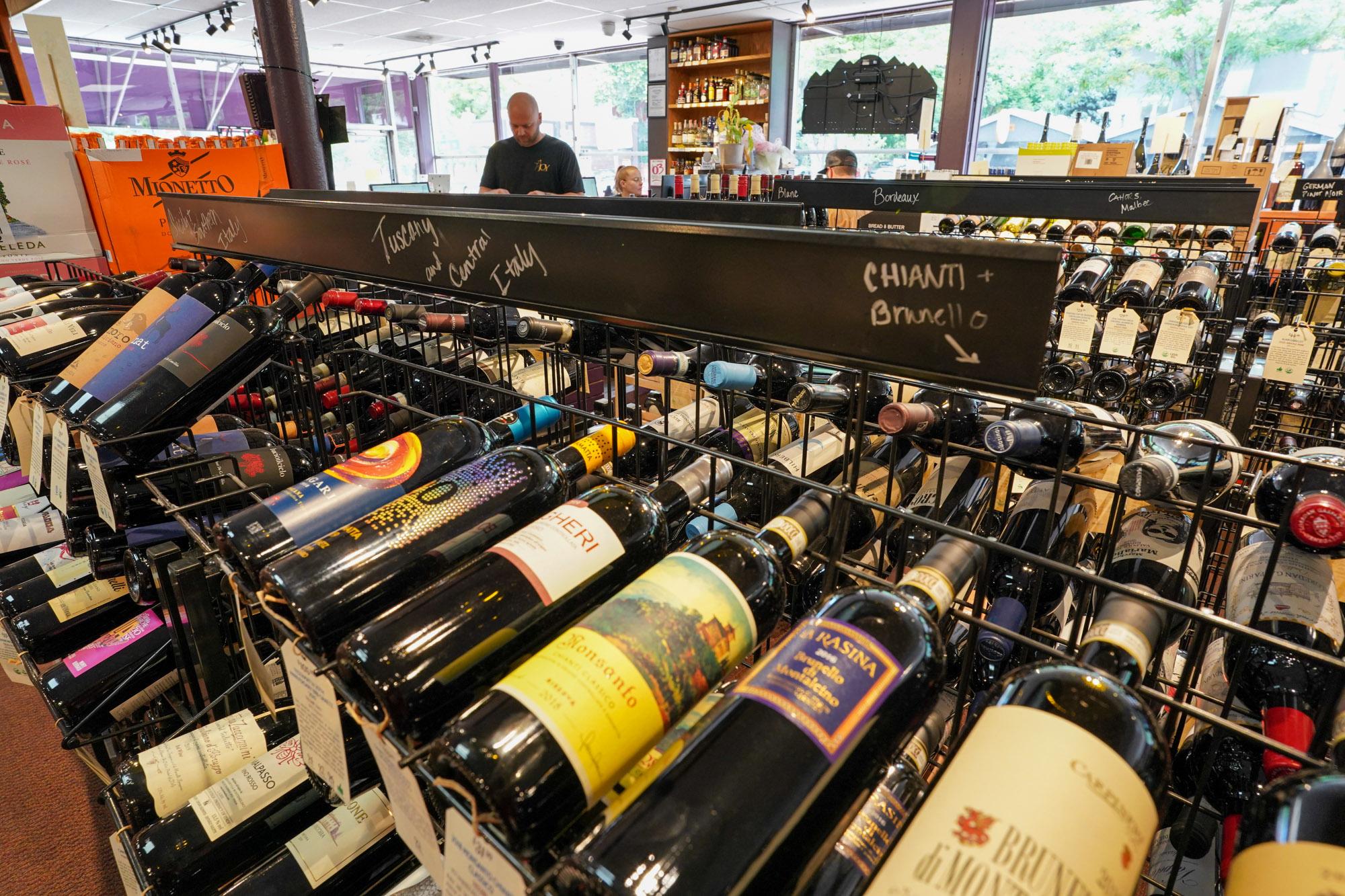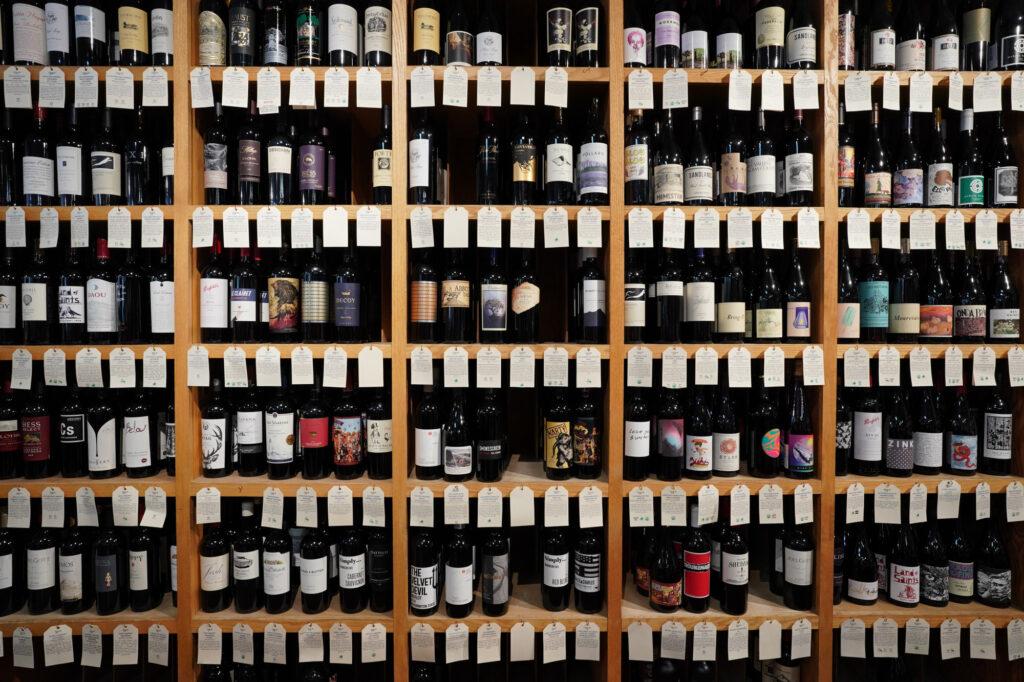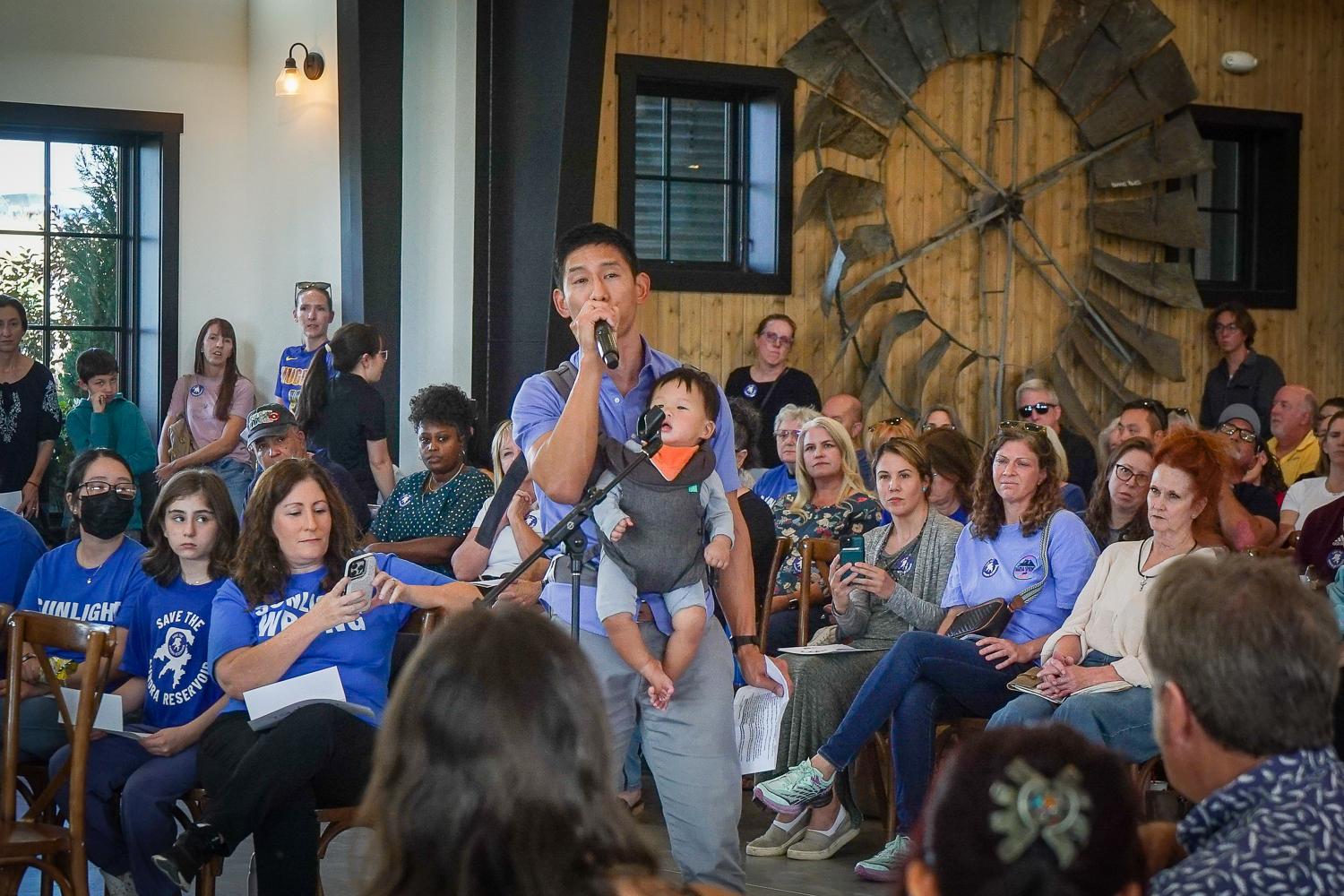
For almost six decades Joy Wine and Spirits in Denver has been serving the local community from the corner of 6th Avenue and Marion Street.
The business has always been family run; first by Tony Joy and his wife Emily. They managed the business while raising six children before passing it onto their youngest child, Carolyn.
“Small business is a challenge and my dad never encouraged any of us to get involved with it because he said you don't get paid vacation,” Carolyn Joy explained.
But that didn’t stop her from helping her father out after college and eventually taking over the store. “I thought, I am either gonna help him clean this up and sell it or I'm gonna buy it from him. So I ended up buying it from him around 1998.”
The Joy family’s story is similar to many of Colorado’s other 1,600 licensed liquor stores. The majority are family owned and many pass down through generations.
Joy Wine and Spirits has grown over the decades, but the underlying business has remained more or less the same since 1963. That could change though, if Colorado voters chose to significantly rewrite the state’s liquor laws in November.
Wine in the supermarket?

This year national grocery chains are making a big push to get wine into their stores across Colorado. They have until August 8 to turn in petitions for a ballot measure to do that. If they make the deadline — and if the Secretary of State determines they met the threshold of 124,632 valid signatures — the issue will go to voters.
The committee pushing this and related initiatives is being funded by national grocers and tech companies. Financial filings show that almost $4 million dollars has been contributed to the committee, with four-fifths of the money coming from DoorDash alone.
Their pitch is that this is all about convenience for the consumer.
Shoppers CPR News spoke with at the Safeway in Denver’s Five Points neighborhood were supportive of allowing groceries to sell wine. Some were even surprised to learn they can’t currently. “I thought they already did,” said Carol Catron, who believes grocers should be allowed to “sell it all.”
Other shoppers acknowledged the impact the change would have on liquor stores. “It will probably hurt small liquor stores,” said Zach Porter. “But if you can get everything at Safeway, why should I have to go to a liquor store?”
Danielle Reimers, an employee at Safeway, said she’s heard “other states do it and people are disappointed we don’t have it.”
An analysis by CPR News found that 37 other states allow grocers to sell wine with minimal restrictions.
If the law does change, the liquor stores likely to be hardest hit are those closest to groceries. Historically, it made sense to seek out a nearby location — often in the same shopping plaza — so when people came for food they could also easily pick up wine and beer.
Joy Wine and Spirits is in that situation; it sits just two blocks from a nearby Safeway, a strategy that long proved to be successful and profitable, but could soon become a liability.
Carolyn Joy thinks allowing grocers to sell wine will make consumers worse off in the long run if they lose the selection and assistance available at independent liquor stores.
Most supermarkets sell a vast array of items. Expecting to get wine advice from a supermarket employee is far-fetched according to Joy. “They've got, I don't know, 50,000 items to keep track of. There's no way they can help you.” Joy’s store employs 12 people who she describes as passionate about beer, wine and spirits.
She also argues that Colorado’s hundreds of independent liquor stores help support the state’s vibrant beverage industry because they are more willing to take a chance with small producers.
The latest skirmish in years of beverage sales fights
Even the state’s larger liquor stores are concerned about what the wine-in-groceries ballot measure could mean for their businesses.
Mat Dinsmore is the general manager and a co-owner of Wilbur’s Total Beverage in Fort Collins. On a weekday morning he sits at a crowded desk overflowing with paperwork while cutting checks for his employees. He pauses to take calls and chat to a wholesaler who dropped by.
“I grew up in the industry. My father was in retail in the 1970's and early 80's in Denver,” said Dinsmore. In 2000, while still in college, Dinsmore and his father, Dennis, bought an existing liquor store called Beverage Nation.
They changed the name to Wilbur’s Total Beverage, moved and expanded to become the largest wine and spirits retailer in the area. Dinsmore has bought out his parents, but Wilbur’s Total Beverage still supports three generations of his family.
He sees the current push for wine in grocery stores as just the latest in an ongoing effort by grocers to sell more and more types of alcohol. “They don't just want wine. They want it all: beer, wine, liquor — basically put all the independents out of business.”
The last time Coloradans were asked about this issue was forty years ago; at that time voters decided against allowing wine in grocery stores 65 to 35 percent. But over the past decade grocers have had greater success changing alcohol laws in their favor.
The array of beers now available in many supermarkets was the result of a 2016 ‘grand compromise’ between liquor stores and grocers and a follow-up law two years later. The deal allowed grocers to sell full strength beer — before they could only sell 3.2 percent beer.
The compromise did try to ease the reality that grocery sales were likely to put some liquor stores out of business, by requiring groceries to buy the licenses of nearby stores, giving those owners a chance to exit the industry.
“It allowed people who were near retirement to retire, to cash out, to close up shop, to wrap up their lease. What it did was it allowed time, because quite frankly, we played with the same rules for 84 years. We needed some time to figure this out,” said Dinsmore.
Looking back, Dinsmore now feels the 2016 compromise short changed liquor stores, who were under pressure to accept a deal or see groceries take the issue to the ballot on even less favorable terms. “The way it rolled out wasn't the way it was talked about in the room,” Dinsmore said.
When supermarkets started selling full-strength beer in 2019 some liquor store owners noticed an immediate impact. “I will say 2019 for us was horrible,” said Dinsmore, who also had to compete with a new Costco opening seven miles away. He said in all, Fort Collins saw 10 percent of its liquor stores close.
A 2020 study by Colorado State University about the beer law change found craft brewers moved about 10 percent of their sales from liquor stores to groceries.
By a global twist of fate, 2020 actually ended up being a stellar year for liquor stores. The pandemic tossed them a lifeline; with most restaurants closed, customers bought more of their drinks from retail stores. According to Dinsmore, that windfall saved many liquor stores. But as the pandemic wanes and life returns to normal, liquor stores face an uncertain future. “How 2022 shakes out for most retailers I talk to is still uncertain. It's probably more 2018, 2019 levels.”
It’s hard to tell how wine in groceries would affect liquor stores’ bottom line. According to the Colorado Department of Revenue there were 1600 retail liquor stores in 2017 compared to 1592 stores in 2021, meaning the total number has remained largely unchanged despite groceries gaining full-strength beer over that time. But closure is only one measurement of impact. Both Joy and Dinsmore said that if voters allow wine in supermarkets they expect to have to downsize and let staff go.
Dueling initiatives
The initiative to sell wine in groceries is moving forward hand in hand with one that would allow companies like DoorDash, Instacart and UberEats to deliver alcohol to customers in Colorado. The idea appeals to grocery chains which are increasingly reliant on delivery sales.
Currently, liquor stores are the only businesses allowed to deliver alcohol, either directly or through a partner like Drizly.
Alcohol delivery is not something that Wilbur’s Total Beverage needs help with; they already scaled up in the pandemic and Dinsmore fears that if the initiative goes through, most of his revenue from deliveries will go directly to the third parties themselves.
In response to grocers' aggressive moves to expand their alcoholic offerings, the Colorado Licensed Beverage Association (CLBA), a trade group representing independent liquor stores, has launched a competing initiative to give local jurisdictions control over licensing.
Under this regime, if King Soopers wanted to sell wine, or even liquor, at a particular location it would go through a process involving public hearings, local considerations and working with local authorities. The CLBA’s hope is that local officials will be less likely to sign off on the new licenses.
Launching at an uncertain time
Even with an uncertain future for Colorado’s independent liquor stores, some still see the industry as a great opportunity.
“This is the first liquor store that we've been able to own. We've been trying for a decade,” said Jason Bourassa, who with his wife Shanna bought an existing Loveland store at the end of 2021 and reopened it as Stone Fox Wine and Spirits in early 2022.
The couple believes Colorado’s liquor laws are bound to change; it’s just a question of when. But they’re betting that size and selection will give them a competitive edge, even if the initiatives pass.
“I wanted a store of a minimum size, something that would survive what's actually going on,” Jason Bourassa said. “I have thousands of bottles that are handpicked. It's a curated selection. I taste everything that comes into the store. I know what it is. I know its story.”
Jason Bourassa started working at Argonaut Wine & Liquor in Denver when he was 21. Since then he has become a wine sommelier and now ‘a bit of a whiskey expert.’
But there are other ways Stone Fox Wine and Spirits will be at a disadvantage if the laws change. Shanna Bourassa points out national grocery chains can lower their costs by buying in bulk at rates that single liquor stores can’t compete with.
“So they're actually driving the deal price. Where we might only buy ten cases, now we have to buy a hundred cases of that family of products to even get the cost down to where we can bother selling it and still make 25 cents a box,” she explains.
Big business vs. small business
Supermarket chains aren’t the only ones looking to sell more alcohol in Colorado. National chain liquor stores have long wanted to move into the state, but limits on the number of liquor licenses per business have prevented them.
Another liquor-related ballot initiative is gathering signatures to lift that restriction.
An issue committee called Coloradans for Consumer Choice and Retail Fairness is behind the effort. It’s raised $2.2 million dollars so far, with all of that coming from the company Total Wine and More and its founders David and Robert Trone.
Total Wine and More has 233 stores across 27 states, including two locations in the Denver area with a third set to open soon in Lakewood. Two years ago, David Trone was elected to the House of Representatives as a Democrat from Maryland’s 6th congressional district.
“The reality is Total Wine and More is coming in. They're coming into Northern Colorado and they destroy stores. We've all been against them since the beginning,” said Jason Bourassa. So while he would like to eventually see Stone Fox Wine and Spirits expand into multiple locations, he fears the initiative would do more harm to businesses like his than good.
But in general, he acknowledges that asking people to vote against their own convenience will be a tough sell. When it comes to wine in groceries, “if it doesn't happen now it'll happen in the near future.”
Bourassa sees Colorado’s rapid growth and changes in consumer expectations as also contributing to this year’s push to rewrite the liquor laws. “The problem is that a vast majority of Colorado at this point is not made of people who have been here for a decade and know what our community is made up of. And they're used to finding wine in grocery stores.”
In the face of customer convenience, Dinsmore hopes voters will think of the small businesses in their communities. “I love this community. This is my home. I'm honored to give back to it, but I would ask voters to take a look: Convenience at what cost?”









